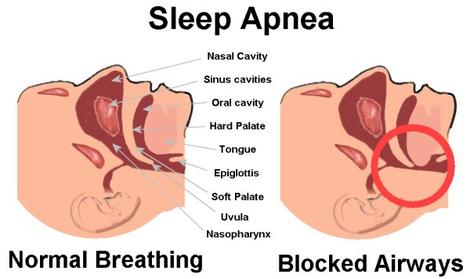The Link Between Atrial Fibrillation (AFib) and Sleep Apnea: What You Need to Know
Sleep apnea is a common sleep disorder where breathing repeatedly stops and starts throughout the night. People with this condition experience one or more pauses in breathing or shallow breaths, leading to fragmented and poor-quality sleep.
The most common type, obstructive sleep apnea (OSA), occurs when the airway becomes blocked or collapses during sleep. As a result, the effort to breathe forces air through the blockage, often causing loud snoring. However, sleep apnea is more than just snoring; it can significantly impact your health.
What Happens During Sleep Apnea?
In sleep apnea, breathing pauses can last for a few seconds or even minutes and may happen up to 30 or more times an hour. Breathing usually resumes with a gasp, snort, or choking sound. This interrupted breathing cycle prevents deep, restful sleep, leading to daytime fatigue and excessive drowsiness.

In patients with sleep apnea, the airways are blocked during sleep, causing periods of apnea (no breathing)
The Connection Between Sleep Apnea and Atrial Fibrillation (AFib)
Sleep apnea doesn’t just affect sleep quality—it also has profound effects on your heart health. The condition is linked to an increased risk of various cardiovascular issues, including high blood pressure, heart failure, heart attacks, and strokes. But one of the most significant connections is with atrial fibrillation (AFib), an irregular and often rapid heart rhythm that can lead to serious complications like stroke.
People with obstructive sleep apnea are at a higher risk of developing AFib due to the increased stress sleep apnea places on the heart. Over time, this stress leads to changes in the structure of the heart, particularly the atria, making AFib more likely to occur. Research has shown that untreated sleep apnea can increase the chances of AFib returning after treatments like electrical cardioversion or AFib ablation.
Why Does Sleep Apnea Trigger AFib?
Obstructive sleep apnea causes frequent pauses in breathing, which lowers oxygen levels and increases carbon dioxide in the body. These changes trigger the body’s stress response, elevating blood pressure and straining the heart. This cycle can lead to atrial enlargement, making it easier for irregular heart rhythms like AFib to develop. Additionally, untreated sleep apnea makes AFib more difficult to control and more likely to recur even after treatment.
Treating Sleep Apnea to Reduce AFib Risk
The good news is that treating sleep apnea can reduce the risk of AFib and improve overall heart health. The first step is a thorough evaluation, including a sleep study to confirm the diagnosis. For those diagnosed with sleep apnea, lifestyle changes—such as weight loss—can be beneficial, but most patients will need CPAP (Continuous Positive Airway Pressure) therapy.
How CPAP Therapy Works
CPAP is the most common and effective treatment for sleep apnea. It involves wearing a mask over the nose or mouth during sleep. The CPAP machine delivers gentle air pressure through the mask to keep the airway open, preventing the pauses in breathing that characterize sleep apnea.
Benefits of CPAP:
- Keeps the airway open while you sleep
- Reduces or eliminates snoring, improving sleep for both you and your partner
- Improves the overall quality of your sleep
- Alleviates symptoms of daytime fatigue and excessive drowsiness
- Helps control blood pressure, especially in people with hypertension
- Reduces the risk of atrial fibrillation and other heart-related conditions
Patients who use CPAP often report feeling more alert, focused, and energized during the day. They also notice fewer complaints from partners about snoring or disrupted sleep.
The Importance of Managing Both Sleep Apnea and AFib
If you have atrial fibrillation and sleep apnea, it’s essential to address both conditions. Managing sleep apnea can not only improve your sleep but also reduce the likelihood of AFib episodes. Treatments like AFib ablation are more effective when sleep apnea is under control.
Conclusion
Sleep apnea and atrial fibrillation (AFib) are closely linked, and untreated sleep apnea can worsen AFib outcomes. Fortunately, effective treatments like CPAP can help manage both conditions, improving sleep quality and heart health. If you suffer from AFib, consider being evaluated for sleep apnea as part of your treatment plan.
Dr Jose Osorio
Miami, FL
Read More About AFib:




